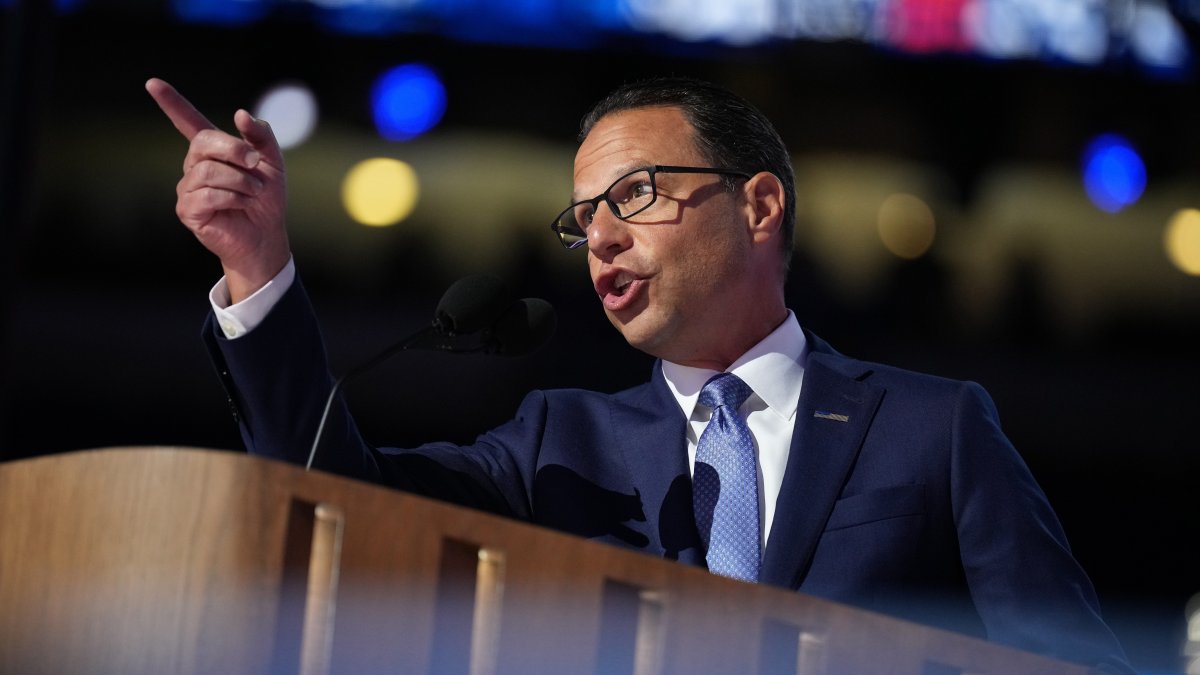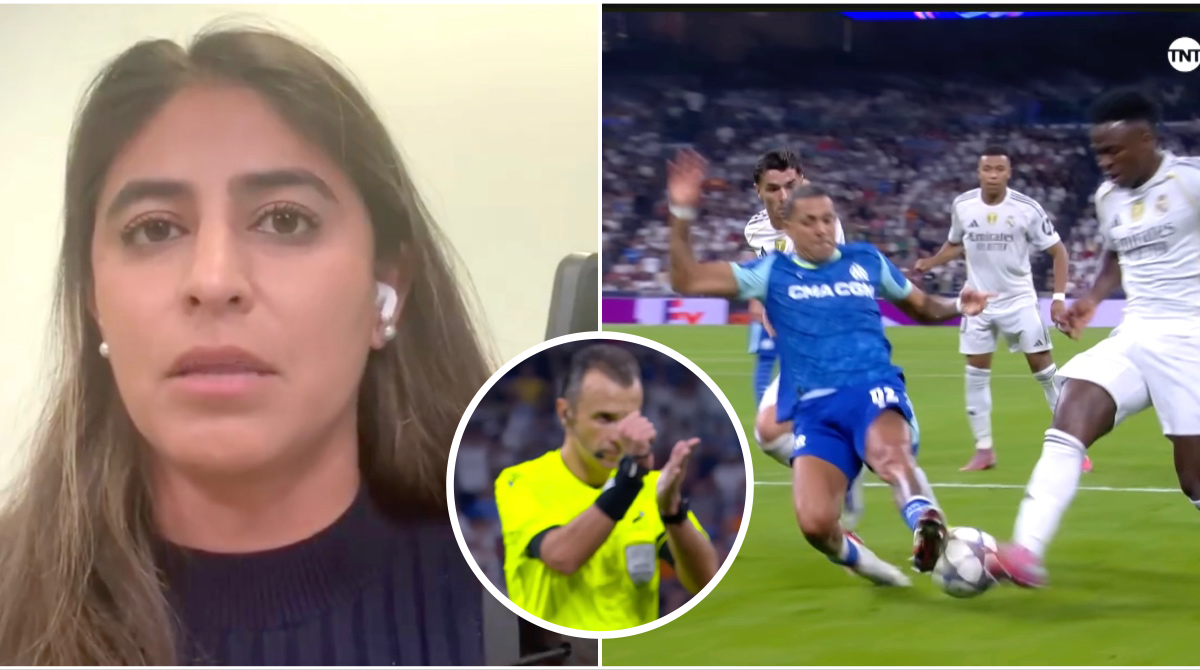Is Governor Shapiro Right About the Selective Condemnation of Political Violence?

Published: 2025-09-17 03:12:38 | Category: Trump GNEWS Search
In a compelling speech at the Eradicate Hate Global Summit, Pennsylvania Governor Josh Shapiro condemned the alarming rise in politically motivated violence, particularly following the assassination of conservative activist Charlie Kirk. Shapiro emphasised that violence has no place in a democratic society, regardless of its source, and urged for a unified condemnation of all such acts. This sentiment reflects a broader concern about political extremism and its impact on society.
Last updated: 26 October 2023 (BST)
Key Takeaways
- Governor Josh Shapiro condemns political violence in his recent speech.
- Charlie Kirk's assassination has heightened concerns about political extremism.
- Shapiro urges a collective condemnation of violence, regardless of political affiliation.
- A YouGov survey shows 87% of U.S. adults view political violence as a significant issue.
- Shapiro's personal experiences with political violence inform his stance.
The Context of Political Violence in America
The recent assassination of Charlie Kirk, a prominent conservative commentator, has reignited fears surrounding political violence in the United States. This incident, along with other high-profile attacks, underscores a growing trend where individuals resort to violence to express dissent or achieve political goals. Shapiro’s speech came in the wake of Kirk's death, marking a critical moment in the ongoing conversation about political violence and its implications for democratic governance.
The Speech at the Eradicate Hate Global Summit
During his address at the summit, which originated as a response to the tragic Tree of Life synagogue shooting in Pittsburgh, Shapiro made a clarion call for unity against all forms of political violence. He stated, “This type of violence has no place in our society, regardless of what motivates it or who pulls the trigger.” His message was clear: political violence, whether from the left or right, poses a threat to the fabric of democracy.
Recent High-Profile Incidents of Political Violence
The assassination of Kirk is not an isolated incident. Other notable examples include the tragic deaths of former Minnesota House Speaker Melissa Hortman and two Israeli Embassy staffers in Washington, D.C. Each of these cases reflects a disturbing pattern of violence that has permeated political discourse.
Impact on Public Perception
Public sentiment regarding political violence is changing. A recent YouGov survey revealed that 87% of U.S. adults view political violence as a serious problem. However, there is a notable divide in perspectives, particularly among younger and more liberal respondents, some of whom believe violence can be justified for political ends. This highlights a troubling trend where frustration with the political system may lead individuals to consider violence as a viable option.
Shapiro's Personal Encounters with Political Violence
Shapiro's condemnation of political violence is also deeply personal. His official residence was the target of a firebombing incident earlier this year, an attack that he attributed to his political stance on contentious issues such as the war in Gaza. Thankfully, his family was unharmed, but the incident left emotional scars that underline the real dangers of political extremism.
The Consequences of Selective Condemnation
Shapiro warned against selective condemnation of violence, stating that it fosters division and makes society less safe. He pointed out that when leaders cherry-pick which acts of violence to denounce, it can embolden others to act on their violent impulses. His call for universal condemnation of all political violence aims to foster a more unified response to these troubling trends.
The Role of Leadership and Rhetoric
In the aftermath of Kirk's assassination, Shapiro critiqued political leaders, including the President, for their responses to violence. He argued that using divisive language and attacking fellow citizens undermines efforts to heal the nation. Shapiro’s stance advocates for a more inclusive dialogue that respects diverse viewpoints while firmly rejecting violence as a method of political expression.
The Danger of Glorifying Violence
Shapiro expressed concern over the glorification of violence in some online communities, particularly among disaffected youth. He suggested that feelings of alienation and frustration can lead individuals to seek out extremist viewpoints that normalise violence. This cycle of despair and aggression poses a direct threat to democratic values and public safety.
What Happens Next?
As political violence continues to rise, the challenge for leaders like Shapiro is to foster a culture of peaceful dialogue and mutual respect. This involves addressing the root causes of political discontent and ensuring that citizens feel heard within the political system. By promoting constructive engagement and rejecting violence, leaders can help pave the way for a safer, more inclusive society.
Calls for Healing and Understanding
Shapiro's message is ultimately one of healing. He emphasised the need for respectful dialogue and the importance of protecting free speech rights. By fostering an environment where diverse opinions can be expressed without fear of violence, society can begin to mend the divisions that have become so pronounced in recent years.
FAQs
What prompted Governor Shapiro's speech on political violence?
Governor Shapiro's speech was prompted by the assassination of Charlie Kirk and a growing concern about the rise of politically motivated violence in the United States.
What examples of political violence did Shapiro mention?
Shapiro referenced several incidents, including the assassination of Charlie Kirk, the killing of former Minnesota House Speaker Melissa Hortman, and the deaths of two Israeli Embassy staffers in Washington, D.C.
How does public sentiment regarding political violence vary?
A YouGov survey found that 87% of U.S. adults consider political violence a serious issue, with younger and more liberal respondents more likely to justify violence for political ends.
What is Shapiro's stance on selective condemnation of violence?
Shapiro argues that selective condemnation of political violence only deepens societal divides and emboldens individuals to commit acts of violence, regardless of their political affiliation.
What actions does Shapiro believe are necessary to address political violence?
Shapiro advocates for universal condemnation of political violence, the promotion of respectful dialogue, and the protection of free speech rights as essential steps towards healing societal divisions.
As the discourse surrounding political violence evolves, it becomes increasingly crucial for leaders and citizens alike to advocate for peaceful engagement. How can we collectively foster an environment that prioritises dialogue over violence? #PoliticalViolence #FreeSpeech #UnityInDiversity



